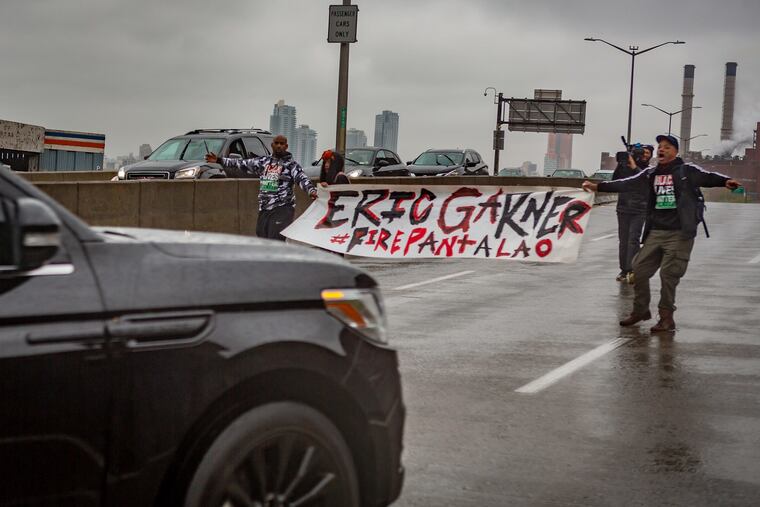Justice Department will not charge police in connection with Eric Garner’s death
For Garner’s supporters, the decision is a disappointing — albeit long expected — end to a case that had languished for years as various components of the Justice Department disagreed about what to do.

The Justice Department will not bring federal charges against any police officers involved in the death of Eric Garner, a 43-year-old black man whose videotaped takedown in New York in 2014 helped coin a rallying cry for those concerned about law enforcement's treatment of minorities, two people familiar with the matter said.
For Garner’s supporters, the decision is a disappointing — albeit long expected — end to a case that had languished for years as various components of the Justice Department disagreed about what to do.
Prosecutors, including Richard Donoghue, the U.S. Attorney in Brooklyn, plan to deliver the news to Garner's family in a meeting Tuesday morning. The development was first reported by The New York Times. The people familiar with the decision spoke on the condition of anonymity because of the matter's sensitivity.
Civil rights prosecutors had advocated vigorously for charges in the case, though they met fierce resistance from their counterparts at the FBI in New York and, at least in the past, the U.S. attorney's office in Brooklyn.
The Justice Department ultimately removed New York FBI agents from the team of investigators, and — soon before leaving office — Attorney General Loretta Lynch authorized the department to move forward. But the decision came so late in her tenure that it was impossible to take all the steps necessary to procure an indictment before President Trump’s appointed Justice Department leaders came in. When they did, the case continued to stall.
Substantiating federal civil rights charges against police officers for on-the-job incidents can be challenging. Prosecutors must present evidence that speaks to an officer's intent, and it is not enough for them merely to show that an officer acted negligently or recklessly.
In Garner's case, too, a Staten Island grand jury also declined to bring charges. And while federal prosecutors could still pursue the case independently, the FBI's initial skepticism was documented in internal records, potentially complicating a future trial, current and former law enforcement officials said.
Garner initially drew the attention of police for selling loose cigarettes and was ultimately wrestled to the ground by officers in an encounter that was caught on video. His gasps of "I can't breathe" became a rallying cry for those advocating for change in how police treat minorities.
The federal investigation focused on New York City Police Officer Daniel Pantaleo, who was among those taking Garner to the ground. He was put on desk duty and this summer went through an internal administrative process to determine what discipline he should face. Stuart London, an attorney for Pantaleo, said he preferred to wait for an official announcement before commenting.
Commissioner James O’Neill is expected to make a decision on his future with the police department soon. The city of New York reached a civil settlement with Garner’s family in 2015 for $5.9 million.